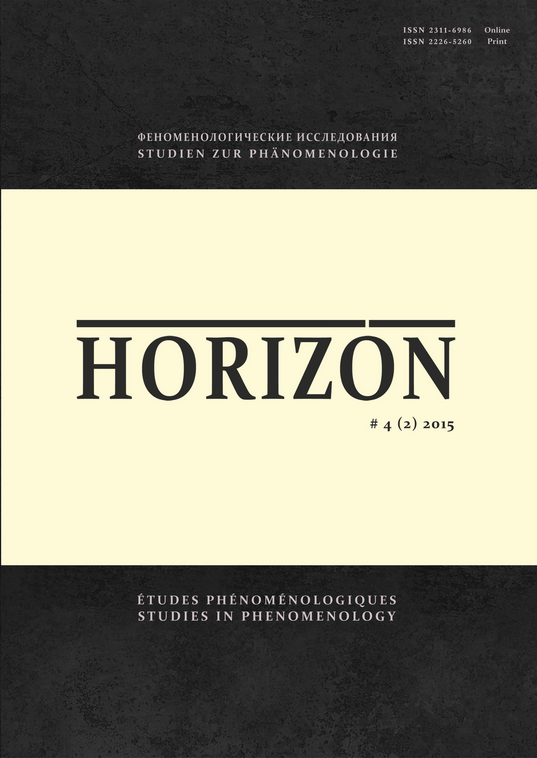EUGEN FINKS KANT-INTERPRETATION
EUGEN FINK’S KANT-INTERPRETATION
Author(s): Yoshiko IkedaSubject(s): German Idealism, Phenomenology
Published by: Издательство Санкт-Петербургского государственного университета
Keywords: World; transcendental idealism; metaphysics; totality; cosmological dialectic (antinomy); transcendental illusion; phenomenology of enworlding
Summary/Abstract: In this paper I outline main theses of Fink’s phenomenological interpretation of Kantian transcendentalphilosophy. My aim is to clarify how and to what extent Kant’s philosophy determines Fink’s «phenomenologyof enworlding [Verweltlichung]». First, I show the very starting point and original motivationsof Fink’s interpretation of Kant. I proceed by examining the contexts in which Fink refers to Kant’sarguments in the Antinomy of Pure Reason and showing that in these contexts Fink is dealing with aspecific philosophical issue, namely, how to conceive of the totality of the «absolute stream of lived experiencing[der absolute Erlebnisstrom]», an issue the late Husserl struggled with. To solve this difficultproblem, one needs, according to Fink, to commit oneself to an ontological reflection on the very differencebetween the intra-temporal entities and time itself. Fink seeks to find a clue to resolve this problemin Kant’s cosmological antinomy: in effect, the latter is based, for Fink, on Kant’s profound distinctionbetween the intra-worldly entities and the world as such («cosmological difference»). Second, I studyFink’s criticism of Kant and how he argues for its phenomenological validity. Further, I show that Finkdoes not accept Kant’s «Doctrine of Transcendental Idealism» which offers, according to Kant, the keyfor the solution to the cosmological antinomy or transcendental illusion. In other words, Fink refusesthe Kantian claim according to which the source of the antinomy is nothing but pure reason as the upperfaculty of dialectical reasoning. Now, it is on the basis of his phenomenological idealism, whichdefends an enworlded conception of transcendental subjectivity, that Fink criticizes Kant’s account ofa worldles subjectivity. Thus, third, I sketch Fink’s phenomenology of enworlding as well as his newsolution for the cosmological antinomy. Fink based the very origin of the transcendental illusion of cosmologicalantinomy on the phenomenon of the world in its specific mode of appearing, which he calls«withdrawing [Entzug or “Entziehung”]». By examining his description of it, one can easily show andjustify the profound difference Fink’s phenomenological interpretations of Kant’s transcendental philosophy(who is exposing his cosmological phenomenology) and Heidegger’s (whose goal is to foundhis hermeneutico-phenomenological idea of fundamental ontology), even if they both agree that therelevance of Kant’s philosophy as a whole does not lie in its epistemology but in its providing a newfoundation for metaphysics. I conclude by stating that Fink’s cosmological phenomenology, which isoften criticized because of its speculative character, is based not so much on Hegel’s idea of dialectic,as on Kant’s (i.e., as profoundly revised by Fink’s phenomenology).
Journal: Horizon. Феноменологические исследования
- Issue Year: 4/2015
- Issue No: 2
- Page Range: 154-185
- Page Count: 32
- Language: German

